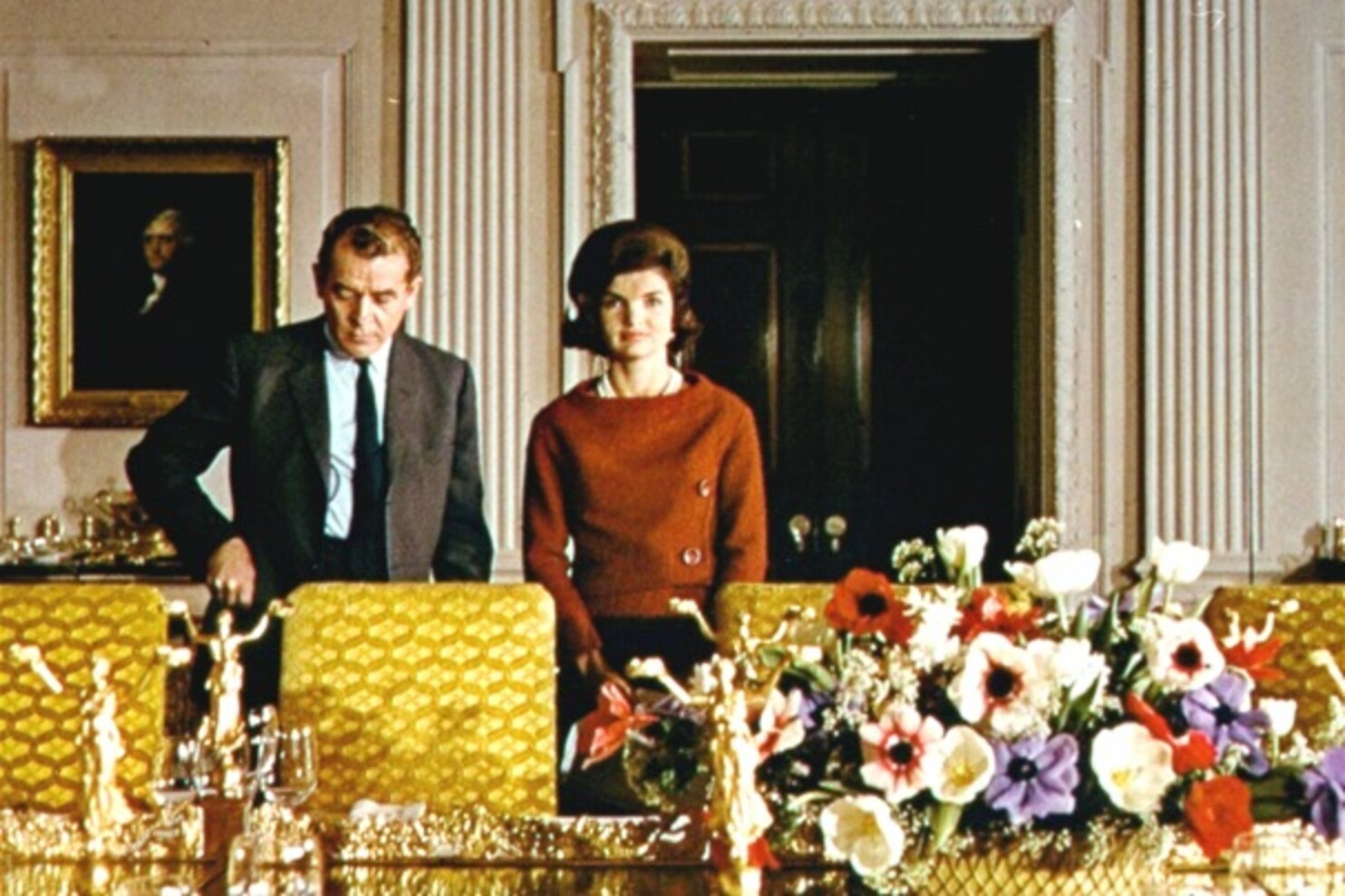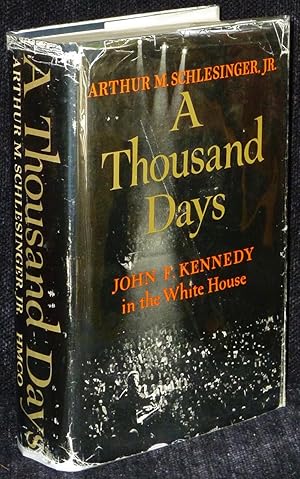The praise built largely on the performance of Natalie Portman in the role of the grieving widow Jacqueline Kennedy in the first hours, weeks and months after the assassination. She's in every scene. The reviewers particularly praised Portman's rendition of Jackie's signature voice.
The film's focus is on the assassination, funeral and after, presented in non-linear time inter-cutting. These days in her life are long before either Jackie O jet setting, or Jackie, editor of coffee table books for Viking. Critics loved this film, especially the score. (Myself, it felt rolling with unearned pretension and portension.)
Effective tear jerking is achieved by the theme song of the popular, award-winning, enduring musical Camelot*(1960), which perhaps just about no one born after 1975 knows these days. What does anyone know about the JFK years in the White House? We sort of know The Cuban Missile Crisis and the assassination, maybe Vietnam?
The humiliations are something else we may know now, though couldn't remember because then they were well-hidden by the family and the media in those days, were JFK relentless, blatant infidelities during his marriage. This is tastefully referred to almost only within Jackie's own knowledge. She is bitter and angry, but her self-control always pulls both her public and personal selves back behind the high, wide wall she's built between herself and this knowledge. Even before marrying into the Kennedy clan, she was a very private person, keeping almost everything to herself.
| JFK and First Lady, Jacquelyn Kennedy, Life Magazine, 1961 |
| JFK and Jackie, 2016 film, Jackie. |
 |
| Jacqueline Kennedy with Charles Collingwood during their televised tour of the restored White House in 1962 |
Part of the reason her style spread throughout the nation, for all age groups and every region, country, suburban and urban, is for the time a First Lady appeared as herself on television. She led a televised tour of the renovated White House, which she fund-raised and directed. It was one of the most popular broadcasts in network television history.
The media also covered in detail the brilliant performances in the White House by the greatest artists in the world, particularly in the United States, and glittering White House parties that brought together not just the political elite, but academia, artists, Hollywood and media. These were planned, organized and hostessed by Jackie.
Jackie's achievement shows us how it was possible, and would only have been possible because of the family background, sensibility, education, imagination, and the flaws, humiliations and insecurities, of this particular First Lady herself.
Whose idea was to equate this period, or as the prize-winning title of the history of the time -- A Thousand Days: John F. Kennedy in the White House by Arthur M. Schlesinger Jr. (1965), with the musical Camelot? Of course it was Jackie.
If there is a theme in the film it is probably that the sausage we call history is manufactured, edited and shaped by those who have the position and power to do so, and this includes Homer's epics. Despite the many tears, Jackie is clear-eyed about what she is able to do. She is as clear-eyed about this as she is about how most people view her, having no idea of the depth and excellence of her education. This education provides her not only fluency in latin, Spanish and French, and art, but in history. It is her keen awareness of how history is made and styled that allowed her to make such a elegant success of renovating the White House decor and furnishings, but the funeral procession.
At one point in the film Jackie admonishes Bobby Kennedy when he tells her that in the circumstances of how dangerous** it is out there, an 8 block funeral procession, with Jack Kennedy's family and all the heads of state from around the world walking, was out of the question. "Bobby, this is our last chance!" she snaps through the smoke of her constant cigarette,*** meaning not only ensuring a place in history, but one that will endure as meaning something, beyond the Cuban Missile Crisis, the bog of Vietnam -- and the terrible defeat of their dreams by the assassination of the people who hated them and their ideas and what they stood for.
According to Bobby Kennedy -- in the film -- the greatness of Jackie’s life is that she created both the concept of the JFK White House with King Arthur and the Round Tables dreams at Camelot, and staged her husband’s funeral procession and burial so that the televised imagery of this spectacle would survive at least as impressively long as the McGruder video of the assassination -- and the footage of the failed Bay of Pigs invasion of Cuba in the wake of the Missile Crisis.
| Lincoln's funeral cortege traveled over 17,000 miles, from D.C. to NYC and across the US, greeting by thousands of mourners everywhere. |
The most affecting lines the Portman speaks as Jackie is while packing to leave the White House, “I have nothing. Nothing has ever belonged to me.” Not even her husband, whom she gives away to history entirely with her design for the funeral, the cortege and burial at Arlington.
The fact is, that after her death, when her will was made public, she really did own very little. The public was shocked, that this woman who was a global celebrity for most of her life, married to two of the most wealthy people in the world of those times, had so little of her own, and hardly any of it -- art, jewelry or real estate -- was valuable in terms in market value.
On the other hand, if anyone -- and a woman at that -- is likely to continue to roll in historical consciousness as long as we are able to have one at least, it is Jacqueline Lee "Jackie" Kennedy Onassis (née Bouvier).
-----------------------------
* Very freely adapted from T.H. White's novel, The Once and Future King.
* * Another important feature of Jackie is that it recalls for us, both those who lived through the period and those born later, how much hatred for JFK was out there -- from the right. At one moment during Jackie's own self-doubts as to the wisdom of staging this great requiem procession she thinks of the "Wanted Dead" posters of JFK all around the south where they are campaigning on their way to Texas. Barry Goldwater and his ilks (recall Goldwater was funded by the Koch Brothers), though never seen on screen, are invoked almost more than LBJ, who is on screen.
* * * In the scenes in which she's giving her Life Magazine interview with Theodore H. White about what happened, what she thinks etc., along with much else that she reveals with the demands, "You didn't hear that, you don't write that down," is "There are no cigarettes." I wondered if anyone else thought of "There is no owl," spoken by Merlin's shy avian companion when young Wart exclaims about him in "The Sword in the Stone," the first book of The Once and Future King. (More on Theodore H. White here.)
.png)




No comments:
Post a Comment